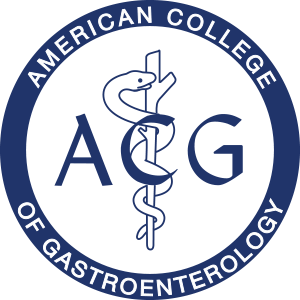Article
ACG Clinical Guidelines Updated for Treatment of GERD
Author(s):
These changes to the previous 2013 ACG Guidelines feature evidence-based guidance for the evaluation of gastroesophageal reflux disease that include pharmacologic, lifestyle, surgical, and endoscopic management efforts.

This week, the American College of Gastroenterology (ACG) published updated Clinical Guidelines on the diagnosis and management of gastroesophageal reflux disease (GERD).
The updates were published in the January issue of The American Journal of Gastroenterology.
Changes to the 2013 ACG Clinical Guidelines were detailed by a team of investigators led by Philip O. Katz, MD, MACG, Jay Monahan Center for Gastrointestinal Health, Weill Cornell Medicine, New York.
Katz and colleagues provided current, evidence-based guidance for the evaluation of GERD that included pharmacologic, lifestyle, surgical, and endoscopic management efforts.
ACG Guideline Updates
Investigators utilized the Grading of Recommendations, Assessment, Development, and Evaluation system to assess the evidence and strength of the recommendations. The quality og evidence was expressed as high (showing confidence in the effect estimate to support a recommendation), moderate, low, or very low.
Additionally, a strength of a recommendation was deemed either strong or conditional based on the quality of evidence, risks versus benefits, feasibility, and costs based on perceived patient and population-based factors.
The investigators noted several new and varied recommendations compared to the 2013 guideline, especially as it related to approaches to extraesophageal symptoms, refractory GERD, and surgical and endoscopic therapies.
Regarding the medical management of GERD, the new guidelines strongly recommended treatment with proton-pump inhibitors (PPI) over treatment with histamine-2-receptor antagonists (H2RA) for healing eosinophilic esophagitis (EE).
A strong recommendation of PPI administration 30-60 minutes before a meal as oppose to bedtime for GERD symptom control was also noted.
A conditional recommendation for on-demand or intermittent PPI therapy for heartburn symptom control in patients with nonerosive reflux disease (NERD) was also included in the new guidelines.
Despite this, the newest changes to ACG Guidelines included increased scrutiny of the role of PPIs in GERD management. The use of the lowest effective PPI dose was recommended for individualized treatment.
Investigators referenced an area of controversy regarding abrupt PPI discontinuation and the potential rebound acid hypersecretion, which could result in increased acid reflux symptoms. The fallout from PPI discontinuation was demonstrated to occur in healthy controls, and strong evidence for an increase in symptoms after abrupt PPI withdrawal was lacking.
The evaluation of the updates to the ACG Guidelines concluded with the expectation of new diagnostic tools and treatments that will be further refined in the coming years.
Investigators noted the “exciting potential” of potassium-competitive acid blockers as new agents for the pharmacologic treatment of GERD, and believed the treatment would soon be available in the US.
“Future research with advanced endoscopic techniques, data on long-term efficacy of surgical intervention, and advances in artificial intelligence and basic science will almost certainly change the way we manage GERD going forward,” the team wrote.





